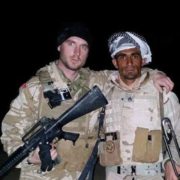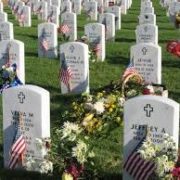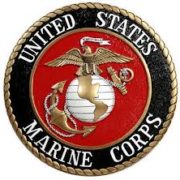Memorial Day originally was called “Decoration Day.” It fixed a time for people to place flowers on the graves of those who fell in the Civil War. Now, on Memorial Day, we remind ourselves of the sacrifices of all veterans.
One person who did not need reminding of his sacrifice was Yale, a friend of my parents. After all, when he looked at the mirror every day, he saw an empty space where one of his arms used to be.
He lost his arm in the Spanish Civil War, while fighting in the Abraham Lincoln brigade, a collection of American volunteers. They were not the first Americans to seek combat overseas. From John Paul Jones serving in the Russian Navy to Ernest Hemingway driving ambulances in Italy before the US entry into World War I, Americans have participated in foreign wars.
Nor was Yale the last American volunteer. There are numerous reports about Western fighters who have volunteered to fight with the Kurdish Peshmerga forces in their war against ISIS. Estimates of their numbers range from “scores” to 2,000. In addition to Americans, volunteers hail from Australia, Great Britain, Germany, Spain, France, Canada, Israel, and the Netherlands.
Many are drawn by the justice of the Kurdish cause. Jason Matson, a former U.S. Army soldier, is typical. “I’m not going back until the fight is finished and ISIS is crippled,” Matson told the Associated Press. “I decided that if my government wasn’t going to do anything to help this country, especially Kurdish people who stood by us for 10 years and helped us out while we were in this country, then I was going to do something.”
Some veterans see their Kurdish adventure as an opportunity for meaning in their life. They were disappointed with the inconclusive conclusions of the Iraq and Afghanistan conflicts. Returning to civilian life was alienating. The one thing they knew how to do – fight – was not valued by employers or their stateside community. At least with Kurds, they can put their training to good use.
The Kurds are ambivalent about these foreign volunteers. They want arms, night vision goggles, gas masks, artillery, and body armor, not people. Several have expressed astonishment that the volunteers did not bring their own weapons. Some leaders have publicly declared that they do not accept foreign volunteers, but since elements of the Kurdish armed forces are not subject to a central authority, these statements are dubious.
The Americans and other Westerners are also ambivalent. Accustomed to a highly educated professional military force, American veterans look askance at the young poorly trained Kurdish fighters. “There are 17-year-olds with no proper training who have seen their friends being killed. They think everyone is Isis – it sometimes feels like a school trip with guns,” said one Westerner. A former US Marine explained “For a militia in the Middle East it’s up to standards, for most Americans I’ve met it’s insanity.”
There are other areas of contention. Some Westerners have been put off by ethnic hostility expressed by Kurds toward the Arabs. One Westerner was disciplined about challenging the practice of discarding first-aid kits. Some have criticized the Kurdish leadership for their inflexibility in adopting new methods. There has been a loss of confidence in the competence of their Kurdish commanders. One American explained his decision to leave the fight, by declaring “I realized that if I stayed I would die and I didn’t come here to die.”
Some elements of the Kurdish armed forces have been reluctant to put Americans on the front-lines, which have disappointed adventure-seeking volunteers. Others recognize veterans as a resource and put them to work training young fighters.
Still others view the foreigners as a public relations opportunity. Foreign volunteers are interviewed by the world press and lionized in social media. The Lions of Rojava are especially known for their skillful use of branded images and media outreach. Canadian Dillon Hillier is sometimes cited as an example of a foreign soldier whose fame has been leveraged for publicity by the Kurdish forces.
Social media is a significant element in this fight. Just as Vietnam was the television war, the battle against ISIS is the Facebook war. Both sides aggressively recruit and lobby through Facebook and other social media.
Unfortunately, some pro-Kurdish Facebook pages are a bit suspect. For groups raising funds, there is no way of verifying their legitimacy.
While social media is undoubtedly valuable, it is the call of war that attracts young men. Kevin Williamson, a US Army veteran, who intends to join the Kurdish forces, explained, “Do I think there’s other ways to help, other than picking up a rifle and going overseas? Yeah, there’s multiple ways. People can help fundraise, people can write their congressmen … But my specific skill set? You know, I’m not really that great with anything other than being a soldier.”
Good luck, Kevin. I hope no one will be putting flowers on your grave for a long, long time.


















